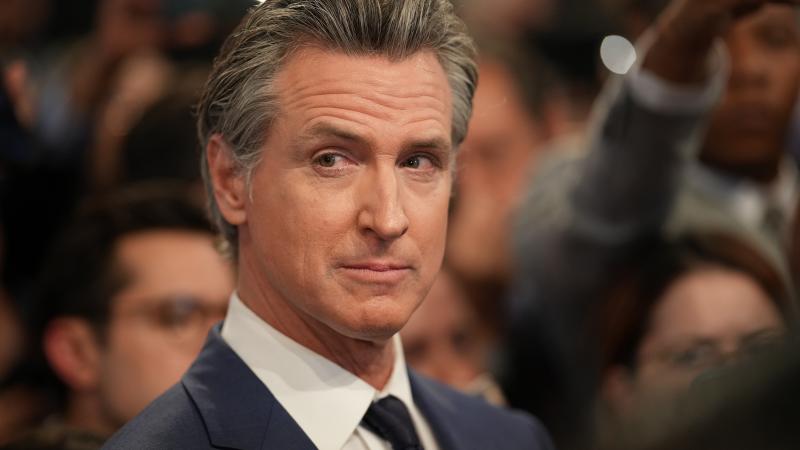Disparate treatment in two fund-raising fraud cases renews debate over dual Justice system
Nigerian Clinton foundation donor gets deferred prosecution deal, Trump inauguration donor gets 12 years in prison in eerily similar cases.
Just a few short weeks apart, the U.S. Justice Department settled two major fund-raising cases involving foreign money injected into American elections.
In February, a longtime Democratic bundler named Imaad Zuberi, who also donated to Donald Trump’s inauguration, was sentenced to 12 years in prison and millions in fines in a criminal information that alleged he routed foreign money into U.S elections, sometimes through straw donors.
Last week, Nigerian-Lebanese billionaire Gilbert Chagoury, 75, a large donor to the Clinton Foundation, got a fine, no prison and deferred prosecution for allegedly routing his foreign money to straw donors to help Mitt Romney’s 2012 presidential campaign and some GOP congressional candidates. An associate also made a secret loan to Obama-era Transportation Secretary Ray LaHood, who failed to disclose the assistance.
The cases have remarkable similarities. Both involved foreign straw donations and tax issues. Both were prosecuted by the same office, the U.S. attorney’s office in Los Angeles. And both men are reported to have provided significant assistance to the U.S. government.
In the announcement of his deferred prosecution agreement, Chagoury was credited by the Justice Department for “unique assistance to the U.S. government,” though officials did not elaborate.
Multiple current and former U.S. officials confirmed to Just the News that Zuberi was a longtime U.S. intelligence asset whose assistance to American agencies was chronicled to the judge in his case in a Classified Information Protection Act (CIPA) filing, which remains under seal.
Recently, the CIA’s former top lawyer joined Zuberi’s team to assist in his appeal, signaling that elements in the intelligence community believe he was treated unfairly and that some of the events that led to his prosecution may have involved U.S. intelligence activities.
The only thing that separates the two men’s cases is the severity of the punishment. Chagoury, two of his associates and LaHood got off easy with deferred or no prosecution deals while Zuberi received one of the stiffest penalties ever for campaign finance and lobbying violations.
Zuberi’s lawyers plan to highlight the disparities in their appeals to the 9th U.S. Circuit Court of Appeals.
“The fact that the these two cases that share significant similarities that were prosecuted by the same US Attorneys office and resulted in such disparate sentences demonstrate the gross injustice of Zuberi’s sentence,” said David Warrington, one of Zuberi’s lawyers.
The outcome in the Zuberi case also has captured the fancy of several legal experts, who note its penalties far exceed the norm for violations of the Federal Elections Campaign Act (FECA) and the Foreign Agent Registration Act (FARA).
“These sentences and criminal fines are some of the highest on record for violations of FECA and FARA,” a recent newsletter from the powerhouse Wiley law firm notes. “The five-year sentences are the maximum sentences for the violations. The judge issued them despite the fact that Mr. Zuberi had pleaded guilty prior to being indicted – a factor that typically demonstrates acceptance of responsibility and militates in favor of leniency in sentencing.”
The Wiley law firm, whose newsletter came out before the Chagoury deal was announced, also noted that most defendants in recent years charged under the two laws (FECA and FARA) got more lenient penalties.
“Further, Mr. Zuberi’s violation was not failing to file a FARA registration, but rather omitting information from his FARA registration” about donations he made, the newsletter noted.
Zuberi’s case is almost certain to raise new issues as it lurches toward appeal, especially if his former CIA lawyer counsel decides to press on the significant assistance his client provided U.S. intelligence,
Meanwhile, Chagoury’s case offers some extraordinary nuggets about political corruption, especially the prosecutor’s tale of how a sitting Cabinet secretary on President Obama’s watch took secret foreign cash while he was in tough financial straits and hid it, with little penalty.
The prosecution agreement details how LaHood as Transportation Secretary received $50,000 from Chagoury routed through a cutout named Toufic Joseph Baaklini, 58, of Washington DC
LaHood, who at the time was suffering financial difficulties, admitted that in 2012 he accepted a $50,000 personal check from Baaklini – with the word “Loan” written in the check’s memo portion – and understood at the time that the money came from Chagoury,” Justice officials noted.
“LaHood failed to disclose the $50,000 check on two government ethics forms as required because LaHood did not want to be associated with Chagoury. Later, LaHood also made misleading statements to FBI agents investigating Chagoury about the check and its source.”
LaHood got only a $40,000 fine and had to repay the $50,000 loan.
Chagoury, who first garnered attention more than a decade ago for his large donations to the Clinton Foundation, provided approximately $180,000 to individuals in the United States that was used to make straw donations to four different federal political candidates in U.S. elections,” prosecutors said.
“Chagoury, a foreign national prohibited by federal law from contributing to any U.S. elections, admitted he intended these funds to be used to make contributions to these candidates,” Justice said. “He further admitted to making illegal conduit contributions – causing campaign contributions to be made in the name of another individual.
Chagoury was allowed to avoid prison time and remain living in Paris, paying a $1.8 million fine.














